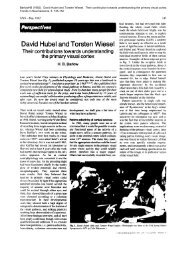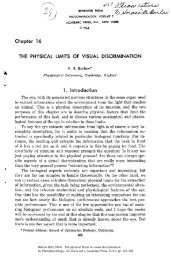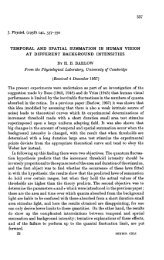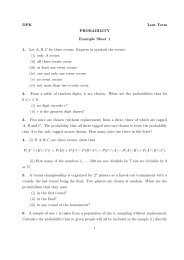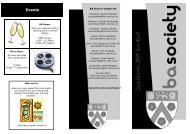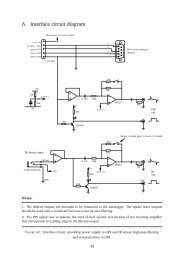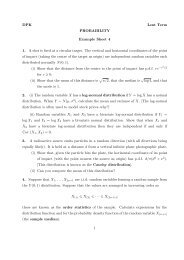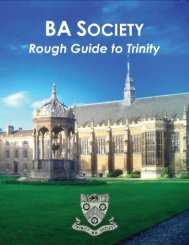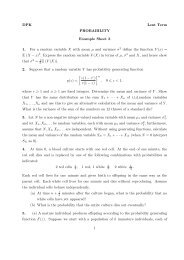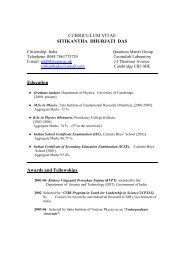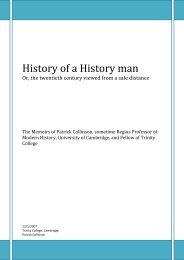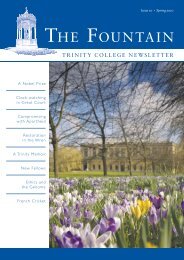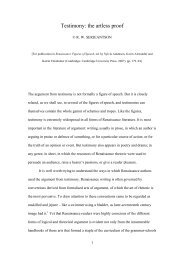Hume's General Rules - Serjeantson
Hume's General Rules - Serjeantson
Hume's General Rules - Serjeantson
You also want an ePaper? Increase the reach of your titles
YUMPU automatically turns print PDFs into web optimized ePapers that Google loves.
<strong>Serjeantson</strong>-20<br />
cannot be avoided, so Leibniz described ‘the proverbs which are current in every<br />
nation’ as being ‘usually nothing but maxims accepted by the whole populace.’ 65<br />
Although he could hardly have known the Nouveaux essais, then, Hume’s account of<br />
general rules is closer to Leibniz than Locke. Whilst rejecting outright their<br />
Aristotelian content and metaphysical import, Hume retained the philosophical sense<br />
that general rules were a valuable and indeed necessary form of reason.<br />
Having seen how the form and context of Hume’s general rules ultimately<br />
derives from traditions of logic and school-philosophy more generally, we are now in<br />
a position to return to the longstanding question of their natural philosophical--and,<br />
more specifically, experimental--inspiration. For philosophers as diverse as Locke and<br />
Arnauld, it was natural philosophy that had done most to damage the Aristotelian<br />
reliance on maxims and rules. As Arnauld and Nicole had pointed out in their<br />
Logique, the experiments of the new natural philosophy had provided exceptions to<br />
rules which had hitherto been thought indubitable--such as the rule that water always<br />
finds its own level. 66 As we have seen, this had led Locke to a suspicion of all general<br />
principles when faced with the necessary particularity of human knowledge. Not all<br />
natural philosophers shared this suspicion, however. As we have also seen, Newton<br />
retained his regulae philosophandi in the Principia, even citing the hoary maxim that<br />
‘Nature does nothing in vain’ (Natura agit nihil frustra) in the gloss to his first rule. 67<br />
The author whose conception of ‘general rules’ perhaps came closest to that of<br />
Hume, however, was the Irish metaphysician George Berkeley (1685-1753). Hume<br />
was well acquainted with Berkeley’s writings, whom he refers to at the beginning of<br />
the Treatise of Human Nature as ‘a great philosopher’, and whose Treatise<br />
Concerning the Principles of Human Knowledge (1710; second edition 1734) he<br />
65 Leibniz, Nouveaux essais, pp. 416, 421. Translations from Leibniz, New Essays, p. 416, 421.<br />
66 Arnauld and Nicole, La Logique, p. 317 (4.6). See further Milton, 'Induction before Hume', p. 59.<br />
67 Newton, Principia, vol. 2, p. 550.



